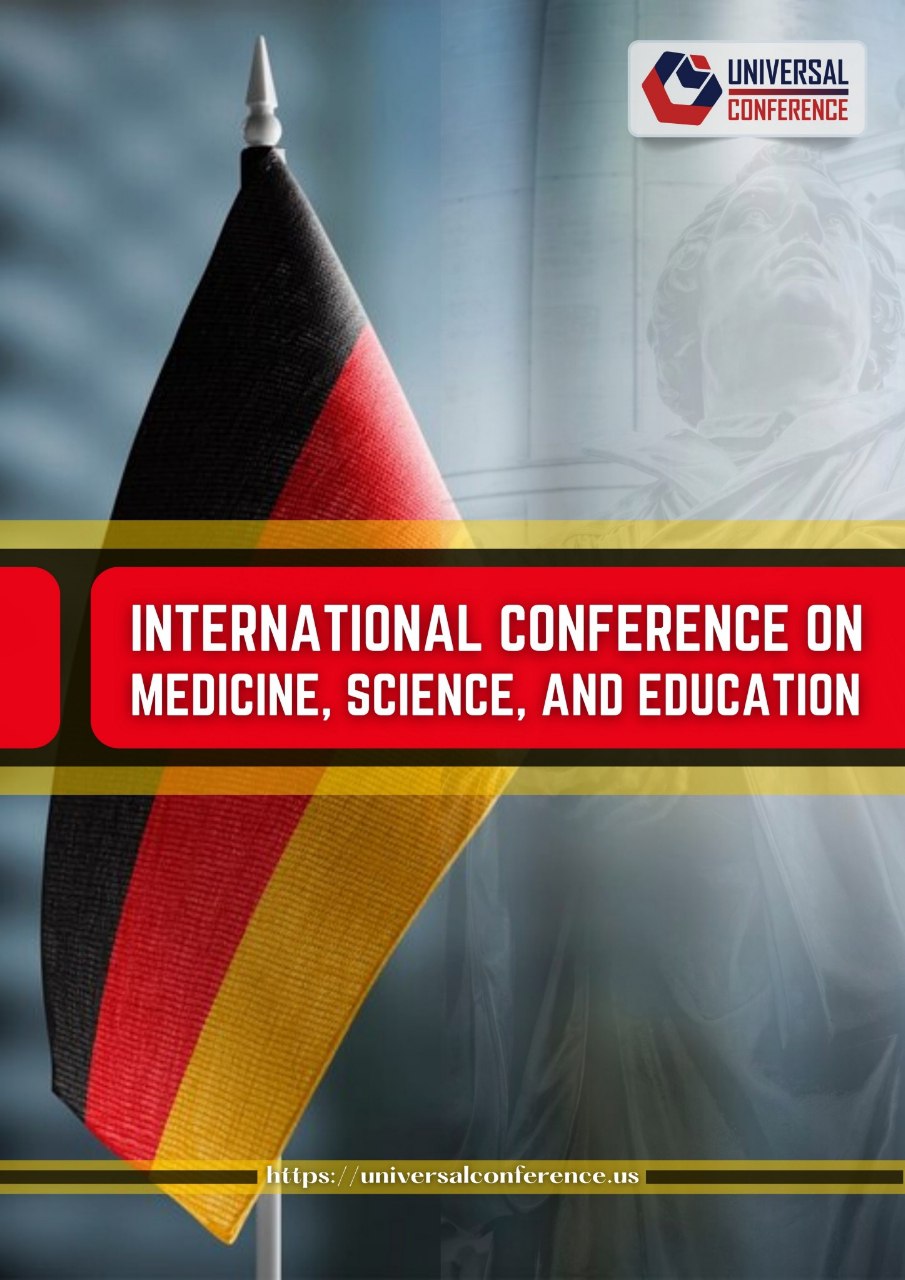MODERN METHODS OF LANGUAGE LEARNING
Keywords:
Digital Learning, Interactive Methods, Flexibility, Personalization, Language Acquisition, Technology Integration, E-learning Platforms, Multimedia Resources, Online Communities, Collaborative Learning, Real-life Application, Motivation, Cultural Understanding, Gamification, Self-directed Learning.Abstract
This paper explores contemporary methods of language learning, emphasizing the integration of digital technologies and interactive approaches. It examines how these methods enhance flexibility, personalization, and engagement in the learning process. The study highlights the effectiveness of various digital platforms and traditional strategies, such as movies, podcasts, and gamification, in promoting language acquisition. By analyzing the benefits and challenges of modern learning techniques, this paper aims to provide insights into creating a more efficient and enjoyable language learning experience. Ultimately, the findings suggest that a combination of digital and traditional methods can significantly improve learners' proficiency and cultural understanding.
References
1. Blin, F., & J. J. A. (2015). The Role of Digital Technologies in Language Learning: A Review of Recent Developments. Language Learning & Technology, 19(1), 1-17.
2. Godwin-Jones, R. (2018). Emerging Technologies: Language Learning and Technology. Language Learning & Technology, 22(1), 6-9.
3. N N Zubaydova How to teach vocabulary Nofilolog oliy o’quv yurtlarida chet tilini o’qitishda uchraydgan muammolar …, 2019
4. Kukulska-Hulme, A. (2009). Will Mobile Learning Change Language Learning? ReCALL, 21(2), 157-165. doi:10.1017/S095834400900021X.
5. Wang, S. (2013). The Impact of Online Learning on Language Learning. International Journal of Emerging Technologies in Learning, 8(2), 40-44.
6. Chapelle, C. A. (2003). English Language Learning and Technology: Lectures on Teaching and Research. Cambridge University Press.
7. M Orzikulova, G Rustamova “Methods Of Improving Speaking Skills For Kids” Conference Proceedings: Fostering Your Research Spirit, 151-154, 2024
8. Peterson, M. (2010). Digital Games in Second Language Acquisition: A Review of Recent Research. Computer Assisted Language Learning, 23(3), 213-236. doi:10.1080/09588221.2010.487593.
9. Thorne, S. L., & H. M. (2013). Language Learning in the Digital Age: Contexts, Challenges, and Opportunities. The Modern Language Journal, 97(1), 1-13. doi:10.1111/j.1540-4781.2013.12001.x.
10. Hockly, N. (2013). Digital Literacies. ELT Journal, 67(2), 223-232. doi:10.1093/elt/ccs083.
11. Valieva, N. (2022). Marie-Laure Derat, L’énigme d’une dynastie sainte et usurpatrice dans le royaume chrétien d’Éthiopie du XIe au XIIIe siècle. Aethiopica, 25, 258-261.
12. Валиева, Н. (2021). «Житие Лалибэлы»: новые перспективы исследования. Библия и христианская древность, 3(11), 197-214.
13. Valieva, N. (2021). Prof. Geta (t) chew Haile:(approx. 04/19/1931–June 10, 2021). Scrinium, 17(1), 16-19.
14. Valieva, N., & Liuzzo, P. M. (2021). Giving Depth to TEI-Based Descriptions of Manuscripts: The Golden Gospel of Ham. Aethiopica, 24, 175-211.
15. Valieva, N. (2020). The Manuscript Book in the Traditional Culture of Ethiopia, written by Platonov Vyačeslav Michajlovič, 2017. Scrinium, 16(1), 410-412.
16. Valieva, N. (2020). Getatchew Haile, The Ethiopian Orthodox Church’s Tradition on the Holy Cross. Aethiopica, 23, 281-285.
17. Valieva, N. (2019). Nafisa Valieva, The ‘Gadla Lālibalā collection of textual units’: tradition and documentation. Aethiopica, 22, 315-318.
18. Валиева, Н. Ф. Библия И Христианская Древность. Библия И Христианская Древность Учредители: Кожухов Сергeй, (3), 197-214.
19. Валиева, Н. А. (2022). Вақф Тушунчаси Ва Тарихдаги Вақф Ташкилотлари Ҳақида. Oriental Journal of Social Sciences, 2(2), 107-114.
20. Худайназаров, Ф. (2024). Кичик Бизнес Субъектлари Фаолиятини Ривожлантиришнинг Назарий Асослари. Iqtisodiyot va taʼlim, 25(2), 335-340.
21. Xudoynazarov, F. (2023). Islom Moliyasi–Muammolar Va Yechimlar. Iqtisodiy taraqqiyot va tahlil, 1(8), 109-114.
22. Худойназаров, Ф. (2023). Ислом Иқтисодиёти: Ибн Халдун Тавсиялари. Iqtisodiyot va taʼlim, 24(6), 351-356.
23. Худойназаров, Ф. (2023). Тўқима Ҳадислардан Ҳадисларни Сақлаб Қолишда Муҳаддислар Фаолияти. Oriental renaissance: Innovative, educational, natural and social sciences, 3(2), 763-776.
24. Khudaynazarov, F. (2020). Political and Dynastic Relations Of Kievan Rus. The American Journal of Interdisciplinary Innovations and Research, 2(08), 55-64.
25. Sattarova, D. (2024, January). Siyosiy Notiqlikning Milliy Mаdаniy Vа Lisoniy Tаhlili (Oʼzbekiston Respublikasi Birinchi Prezidenti Iа Karimov Nutqlari Asosida). In Международная конференция академических наук (Vol. 3, No. 1, pp. 5-7).
26. Sattarova, D. (2023). Komunikativ Diskursning Tadqiqot Ob’yekti. Молодые ученые, 1(22), 41-43.
27. Suleymanova, N. M., & Idiyev, A. R. O. G. L. (2021). Gapning Nominativ Aspekti Va Uning Kommunikativ Jarayoni Haqida. Academic research in educational sciences, 2(12), 805-809.
28. Сулейманова, Н. М., & Абдуллаева, Л. Т. (2017). Имманентный характер синергетических свойств единиц языковой системы. In Инновации В Современном Языковом Образовании (pp. 61-65).







